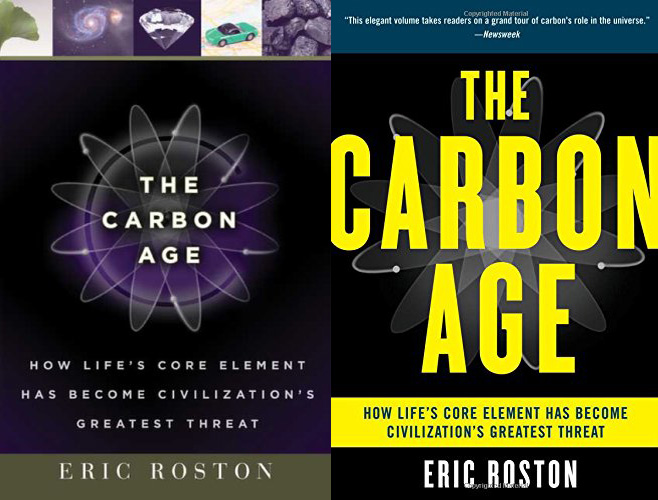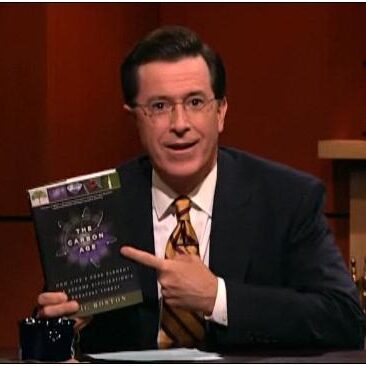It could be said that all of us are a little alien―our bodies' carbon atoms first shot forth from supernovas billions of years ago and far, far away. Carbon has always been the ubiquitous architect and chemical scaffolding of life and civilization.
There's a book about it, too.

The Carbon Age first published in 2008 as a showcase summer title for Bloomsbury USA and has been translated into several languages.
Who Said What
Sir John Meurig Thomas
Professor, University of Cambridge
"An enticing new book... a success, especially in dealing with climate change... fluent writing... teeming with unexpected information and is a grand tour of the Universe."
Juliet Eilperin
Washington Post
"Roston's book convinced me that the fastest way to understand 'everything larger than an atom and smaller than a planet,' is through the element carbon."
Publishers Weekly
"Roston, a former Time writer on technology and energy, positively revels in the chance to dig deep into the ubiquitous, life-enabling carbon... Roston is a whirlwind..."
Library Journal
Best of the Year
"Roston... gives readers a substantial context to the sound bytes concerning climate change... that are flung at us with little explanation... [He]leads us patiently and clearly through this complex issue."
Kirkus Reviews
"Lucid and occasionally disturbing."
Walter Isaacson
Author, Steve Jobs, Einstein, and Benjamin Franklin
Roston's "narrative is a wonderful way to relish some basic science as well as understand some of the most profound policy issues we face."
Yoko Ono
Artist, author of Grapefruit
"A very well researched biography of Carbon and humanity that will help you appreciate everything from the Big Bang to the Industrial Revolution to Global Warming and make you want to help save the Earth. It’s easy to read and makes you gain so much knowledge that we will need for the New Age."
Dudley Hershbach
Nobel Laureate in Chemistry, Harvard University
"With delightful verve and zest, Roston explores the awesomely cornucopian roles of carbon, ranging from cosmic to cellular, from climate to cancer. He also makes a compelling case that human destiny and carbon are now inextricably coupled."
Norman Augustine
Former Chairman and CEO of Lockheed Martin Corp.
"If you thought oxygen was important wait 'til you read this brilliantly researched tale of carbon: the element that makes possible diamonds, the 'lead' in your pencil, even 'you'... and is likely to occupy many headlines in the years ahead because we can't live without it and we may not be able to live with it."


